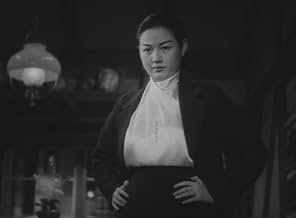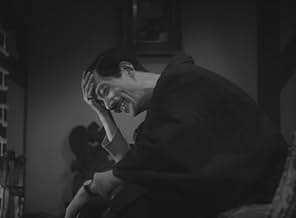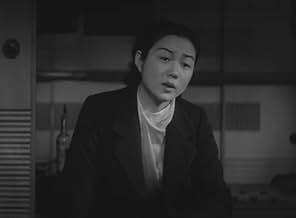Shukujo wa nani o wasureta ka
- 1937
- 1 घं 11 मि
अपनी भाषा में प्लॉट जोड़ेंAn affluent medical professor, Komiya, and his bossy wife, Tokio, are to look after Setsuko, their high-spirited niece from Osaka. Setsuko is a liberated woman who does what she wants, inclu... सभी पढ़ेंAn affluent medical professor, Komiya, and his bossy wife, Tokio, are to look after Setsuko, their high-spirited niece from Osaka. Setsuko is a liberated woman who does what she wants, including smoking, even though she is a minor. On Saturday, the professor does not feel like go... सभी पढ़ेंAn affluent medical professor, Komiya, and his bossy wife, Tokio, are to look after Setsuko, their high-spirited niece from Osaka. Setsuko is a liberated woman who does what she wants, including smoking, even though she is a minor. On Saturday, the professor does not feel like going to his weekend golf game, but his wife packs him off anyway. So he leaves his bag at t... सभी पढ़ें
फ़ीचर्ड समीक्षाएं
Komiya (Tatsuo Saito) is a professor of medicine in Tokyo. His wife, Tokiko (Sumiko Kurishima), is a nagging woman who never bore him a child and almost gleefully henpecks him every second she can get. Komiya, though, never seems that bothered by this. When their little existence is interrupted by a visit from his niece, Setsuko (Michiko Kuwano), a modern girl who smokes and generally just gets on Tokiko's nerves. There are some other small subplots in the opening act that feel designed to just eat up time and never pay off, like Okada (Shuji Sano), one of Komiya's students, offering tutoring lessons but having the worst time with some basic math word problems. It's a weird thing to notice at the end of a film, that a solid chunk of the opening had very little reason for being there, especially when the film is so short. But, anyway.
Tokiko insists that Komiya go away for the weekend to golf. Komiya doesn't feel like going away to golf, so he hangs out in a bar, runs into Okada, and convinces his student to take his clubs and mail a postcard from the course resort to Komiya proving his presence.
The dramatic aspect hinges on weather, though. Komiya writes in his postcard that the weather is great. It ends up that most of Japan is drenched in rain the whole weekend. So, what's Komiya to do about this postcard? It's made all the worse by Setsuko finding Komiya and getting him to take her to a geisha house, an activity that Tokiko would surely never agree to.
So, there's something like a race (only like one, this is a mature, sound Ozu film we're talking about, no one rushes) to get to the postcard, but it can't be got to in time, and we have a dramatic showdown with Setsuko in the middle of it.
So, what's the point of this? As with most Ozu films, it takes a while to clear up, but it certainly does. It's this look at a marriage that seems unhappy from the outside with a henpecked husband and an overbearing wife, all without children, but Komiya, having come to terms with his existence, knows how to navigate the little dramas of his married life. Setsuko wants to upend that, making Komiya more obviously powerful in the relationship with his wife, but Komiya knows that it can't work like that with Tokiko.
It's acceptance that things will be the same, and that going through Komiya, the quiet, good-natured main character, it ends up working. If he can retreat to his corner of the house with a smile, knowing that things will work out, he'll find his happiness. It's an outlook that accepts things as they are with quiet reserve, a very Zen outlook on things.
And it's nice. It's not deeply moving like The Only Son. The stakes are lower, and watching a henpecked husband smile at his state is not as emotionally effecting as the only son of a woman understanding how to properly show his gratitude. However, I think the emotional catharsis is actually achieved through Setsuko learning that she doesn't know everything about a relationship she's only just stepped into. It's humbling for her to think that she knows how everything should go and insisting on changing everything only to realize that she doesn't know anything.
I think that points to how Ozu can create these multi-layered stories so easily. It's not his best example, but it's a solid one.
क्या आपको पता है
- ट्रिवियाIn Kinema Junpo magazine in 2009 poll on the greatest Japanese films of all time, it ranked on 59th place.
टॉप पसंद
विवरण
- रिलीज़ की तारीख़
- कंट्री ऑफ़ ओरिजिन
- भाषा
- इस रूप में भी जाना जाता है
- What Did the Lady Forget?
- उत्पादन कंपनी
- IMDbPro पर और कंपनी क्रेडिट देखें
- चलने की अवधि1 घंटा 11 मिनट
- रंग
- ध्वनि मिश्रण
- पक्ष अनुपात
- 1.37 : 1
इस पेज में योगदान दें






























